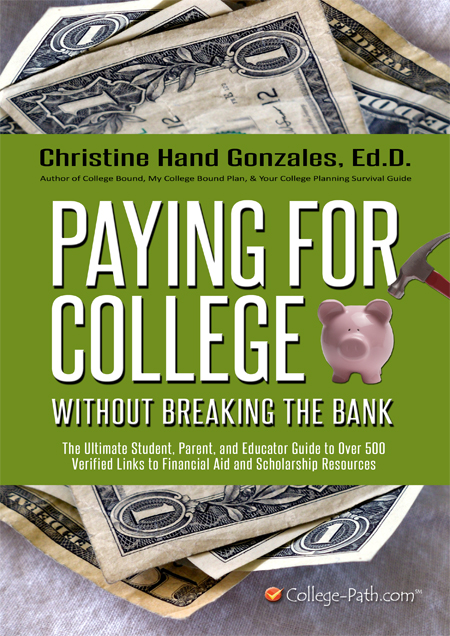 Will you be working while studying at your college under the Federal Work-Study (FWS) program? Many institutions throughout the United States participate and include FWS programs as a part of the student’s financial aid package.
Will you be working while studying at your college under the Federal Work-Study (FWS) program? Many institutions throughout the United States participate and include FWS programs as a part of the student’s financial aid package.
BEFORE you choose this option, there are some things you need to understand:
1. A Federal Work-Study award may be a job offered on or off campus.
The Federal Work Study Program (FWS) is a federal financial aid job program regulated by the federal government. Colleges can award FWS funds based on financial need as calculated by the U.S. Department of Education from information reported on the student’s Free Application for Federal Student Aid (FAFSA).
A college may offer employment in any department, academic or nonacademic on campus. Positions available may include clerical positions, tutoring, lab research or computer lab assistant, tour guide, usher at public events, food/cafeteria worker, library assistant, and child care worker. Colleges may also contract with off-campus employers.
If you work off campus, your employer will usually be a private nonprofit organization or a public agency, and the work performed must be in the public interest. Check with your school to see if there any restrictions to jobs you be assigned to.
2. Students must apply for specific Federal Work-Study jobs.
Students who accept a FWS award apply for a work-study position usually through their college’s Financial Aid Office. It would be to a student’s benefit to choose community service work or work related to their major. Thought it is not a paid internship, you can certainly gain experience at interviewing, coordinate the job option around your course schedule, or choose a job due to convenience or availability.
Ask yourself a few questions before accepting an assignment:
- Can you balance work and study time?
- What other activities on-campus or off are on your schedule?
- Can you find a better paying job elsewhere?
3. Federal Work-Study recipients receive a paycheck.
Students receive their FWS award in the form of a paycheck from their college as they work. The entire FWS amount awarded does not reduce the college bill  immediately in one lump sum, although Net Price Calculators and Financial Aid Award letters sent to admitted students may subtract the total FWS as financial aid.
immediately in one lump sum, although Net Price Calculators and Financial Aid Award letters sent to admitted students may subtract the total FWS as financial aid.
Students may be paid hourly, bimonthly or monthly. The school usually pays you directly unless otherwise stated on your agreement. Wages will equal at least the current federal minimum wage but might be higher, depending on the type of work you do and the skills required. Federal minimum wage is $7.25 per hour. For example, to earn a $2,200 FWS award for the school year based on federal minimum wage laws, students have to work about 300 hours. If the school has two semesters of 15 weeks each not counting finals week, a student working 10 hours per week would earn $72.50 each week.
Paying for College Without Breaking the Bank on Amazon.com http://amzn.to/2CPdAT1
4. Federal Work-Study earned money is taxable.
Unlike a college grant/scholarship, FWS is taxable income earned from work. Earned FWS income is reported twice on the FAFSA – once as wages and once as an exclusion from taxed income. It is important to note a students’ future financial aid awards are not penalized for accepting current FWS awards.
5. Your Federal Work-Study job ends when award amount is met.
When a student receives paychecks up to the full amount of their award, the job ends. Any unearned money cannot be rolled over into next year’s award.


